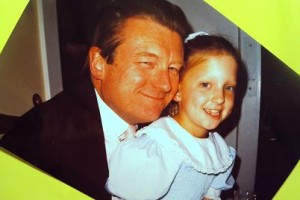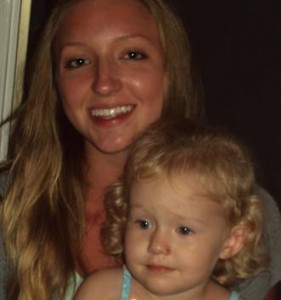We already had six children when we learned we would be having another. The line-up was boy-boy-girl, boy-boy-girl. This pattern led us to believe we’d have another boy, but I had to talk myself out of wanting a girl to partner with Louisa, who would be only 18 months when the new baby arrived.
But as every mother-to-be knows, a pregnancy quickly bonds mommy to unborn baby, and the sex didn’t really matter. But when I began bleeding at 11 weeks along, I knew we were miscarrying the baby.
It was a sad loss, but our lives were busy and full. I didn’t have time to mourn when it happened, but when that baby’s original due date arrived six months later, I found myself dissolving in grief over our loss. Not until heaven would we know who that was, and I had trouble shaking off the sadness and drying up the tears.
Later that very day, though, on the baby’s actual due date, I learned I was pregnant again! God’s timing was spectacular as always, and knowledge of another little one coming to join our family quickly overwhelmed my sorrow over the miscarriage. The weeks ticked off without a hitch, and when I was eight months along, we had an ultrasound test.
I remember that day well. Because sonography was brand new, Nate and I decided to take our three oldest kids to the doctor’s office to watch the monitor with us and appreciate a glimpse of their new brother or sister a month before the birth. Nels, Lars and Linnea were 17, 15 and 13, old enough to be genuinely grateful for their younger siblings.
When we learned during the ultrasound we’d be having another girl, Linnea and I whooped with delight. God had rearranged the boy-girl pattern, giving me the desire of my heart, which was to balance our boy-heavy family with another girl. That feminine blessing turned out to be Birgitta Mary, named after the first Swedish queen and my sister.
Today Birgitta celebrated her 20th birthday, that universal birthday that says farewell to the teenage years. It was a similar farewell for me today, having had one or more teenagers in the house for 24 years straight. Birgitta has been a daughter of whom we’ve been proud all the way along. She’s a talented artist, journalist, violinist, dancer, singer and song-writer. She’s a list-maker and a girl who plans for her future. She’s organized and is a champion at setting a goal and reaching for it.
Organizing a “gap year” after high school graduation, Birgitta has been rooming with Louisa in Chicago, both of them anxious for the experience of living and working in a big city. But she’s ready to move on and has chosen to begin college life at a Big Ten university in the fall, changing her focus toward acquiring a degree or two, and one day working in the relatively new field of art therapy.
I was nearly 45 years old when Birgitta was born, and I’ve often referred to her as “the frosting on our family cake.” From her early years as the family “OK Girl” (nicknamed because of her agreeable disposition) to her current years of becoming my friend, she’s been a sweet blessing all the way along. If her father had been at her party today, he would have been singing her praises.
God sure was good to us on June 18, 1990.
“Don’t let anyone look down on you because you are young, but set an example for the believers in speech, in life, in love, in faith and in purity. Be diligent in these matters. Give yourself wholly to them, so that everyone may see your progress.” (1 Timothy 4:12, 15)





